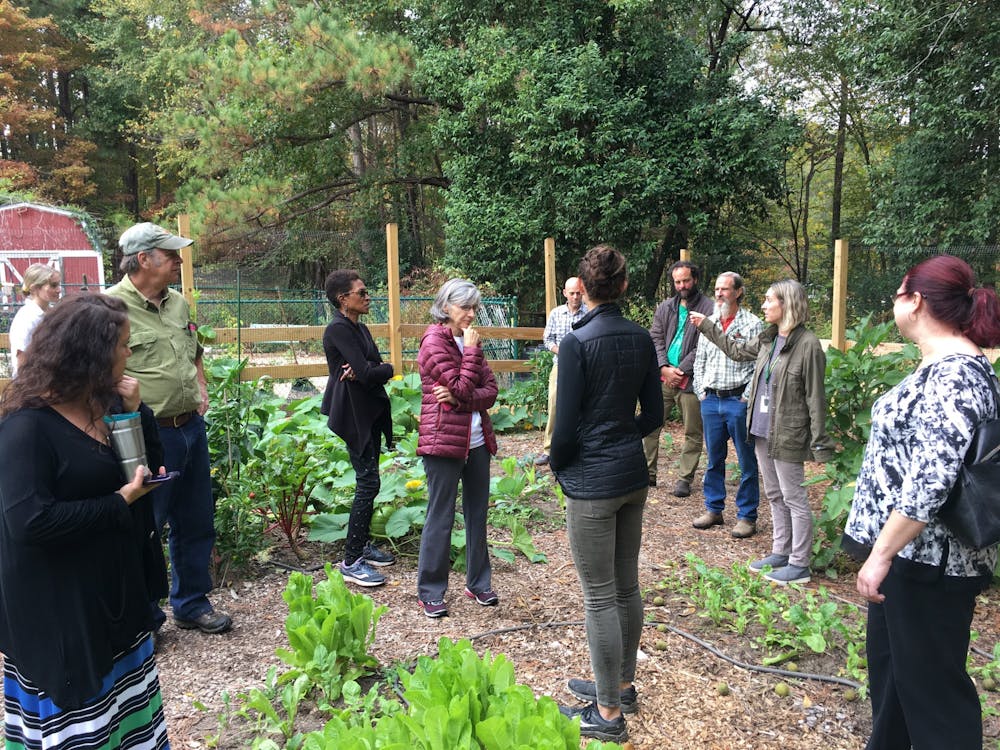Five years ago, Orange County citizens partnered with Community Food Strategies (CFS) to work on forming partnerships within the community to create a sustainable and equitable food system.
Now the group, the Orange County Food Council, has a strong foundation and feels ready to take on policy changes.
Julia Sendor, who co-chairs the OCFC with Mariela Hernandez, said the group's values are rooted in listening to the perspectives of people who have lived experience in the areas in which they're working. She said this includes food access, the local food economy, food waste and racial equity.
The 15-member council has seats for each elected body, including representatives from the Orange County Board of County Commissioners, Hillsborough Board of Commissioners, Carrboro Town Council and Chapel Hill Town Council. A fifth designated seat goes to a representative from the Orange County Agricultural Preservation Board, whose role is to represent agriculture and farming.
Ken Dawson, the Agricultural Preservation Board representative, is a farmer for Maple Spring Gardens who has worked in agriculture for over 40 years. He said this experience influences how he carries out his role for the food council.
“I bring a perspective to it that nobody else on the food council has, really,” Dawson said. “For a long time, I’ve grown food and we’ve always marketed our food to the local community, so we’ve been very much involved in the local food economy.”
Ashley Heger also holds an important role on the OCFC. She is the food council coordinator, which is a full-time paid position that was established in the last two years.
“On a broader scale, my role is to help guide the work of the food council," Heger said. "So if we are interested in developing policy or advocacy efforts around a particular issue, whether that’s agricultural land use or improving access to fresh food, my role is to understand those best practices, work with stakeholders, especially those with experience in those areas, and then to make recommendations or help coordinate actions within our network."
The food council has working groups that are made up of mostly volunteers. These working groups are Food Access, Local Food Economy, Food Waste Rescue and Racial Equity. The groups hold meetings and provide recommendations to the council members.



